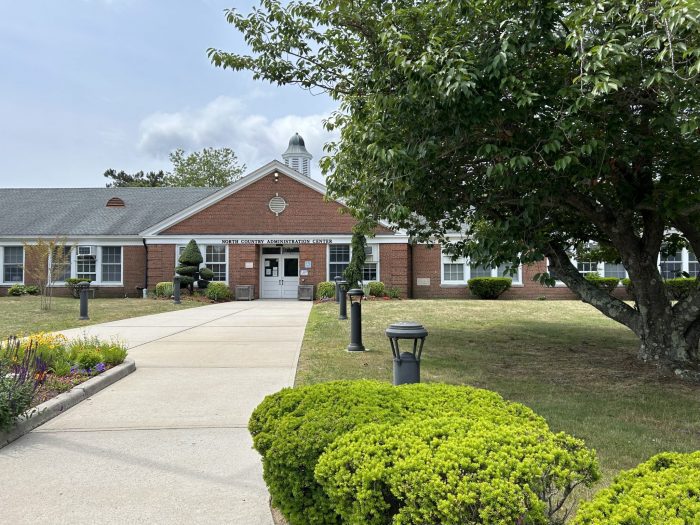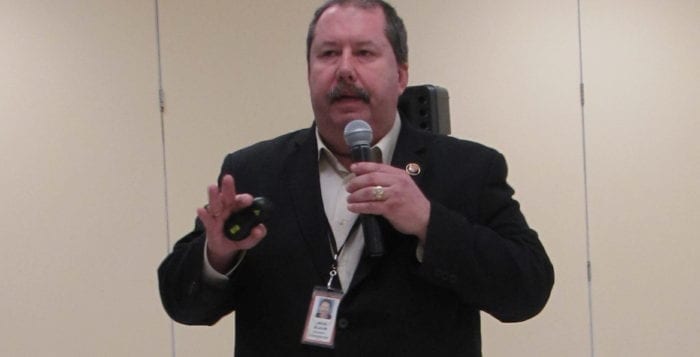Trustees praise the budget but urge better advanced financial planning
By Mallie Jane Kim
Three Village Central School District will ask voters to decide on a $236.1 million school budget, a 2.27% increase, May 21. The 2024-25 budget, which was adopted at an April 17 school board meeting with five “yes” votes and one abstention, stays within the district’s 2.84% tax levy cap and therefore would pass with a simple majority of the vote.
Support for the budget at the meeting came alongside calls for continued improvements in planning for years ahead.
According to Deputy Superintendent Jeffrey Carlson, the district was able to cut 15 positions through attrition, thanks to 67 staff retirements, and save $250,000 by restructuring administrative positions.
The district planned the budget as though aid from the state would remain flat — a strategy that worked out well since New York State’s budget, which passed over the weekend, walked back Gov. Kathy Hochul’s (D) proposal to cut funding to certain districts, including Three Village, which would have lost about $9 million in state aid. Under the finalized budget, state funding to Three Village remains essentially the same, less some expected changes in building aid the district notified residents it had already accounted for.
District officials and board members have indicated they took the governor’s initial proposal as a warning: Cuts to state aid are likely down the pike, so budget planning should take that likelihood into account.
Budget Advisory Committee representative Shari Fontana praised the administration for making strides toward fiscal stability and prioritizing the educational, social and emotional needs of students.
“We realize that no budget will ever be perfect,” Fontana read, in a statement from the BAC, a committee of board-appointed community members and district stakeholders. “Our district is truly doing the very best they can under the circumstances.”
Fontana added that the committee recommends the BAC convene earlier in the school year and receive an advance copy of the budget with time to ask questions. She also said the committee would prefer to have a multiyear outlook on budget planning rather than advise for a single year.
Trustee David McKinnon abstained from the budget adoption vote, voicing similar concerns. “I remain concerned that without a clear and strict financial plan to represent everybody’s interest, we’re just kicking the can down the road,” McKinnon said. “We know our costs are increasing faster than our revenue. That’s going to be a recipe for a problem, if it’s not already here.”
McKinnon also lamented the fact that the board has not yet committed to making secondary start times later in conjunction with the plan to restructure schools in fall 2025. If a time change is not solidified, sixth and ninth graders that year would have to start school even earlier than they would have done if those grades had not moved up to the junior high and high school, respectively.
Yet he acknowledged the 2024-25 budget plan, which increases district spending just over $5 million from the current year, is an improvement. “I agree that we’re headed in the right direction,” he said. “I know how hard everybody works here.”
Trustee Karen Roughley, who has also pushed for more advanced planning, praised the district for the budget effort, especially in light of increasing expenses that are outside of district control, such as staff contracts and vendor agreements. “To be able to present a balanced budget that takes all that into account while not excessing any staff or cutting any programs is pretty impressive to me,” she said. “Do I think things can be tweaked over the next couple years? Absolutely. But this is a great start.”
Voting takes place at Ward Melville High School on May 21 from 6 a.m. to 9 p.m., and this is the first year voters can opt to vote early by mail. Information on early and absentee voting is located on the district’s website by clicking on the Board of Education drop-down menu and selecting Budget Information.







